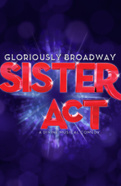Douglas Carter Beane on How Underage Drinking Helped Him Write Sister Act
About the Author:
As the musical adaptation of Sister Act was preparing to hop the pond from the West End in 2010, producers enlisted a veteran playwright to give the show a Broadway makeover: Douglas Carter Beane. The famously funny writer earned his third Tony Award nomination for his Sister Act efforts, having gotten nods for his two previous Rialto outings, the satirical play The Little Dog Laughed and tongue-in-cheek book for the musical Xanadu. Here, Beane reflects on the challenges of revamping a show’s existing script and shares his wisdom on what really makes “a Broadway show.”
![]()
There is such a thing as “a Broadway show,” and Sister Act needed to be a Broadway show. There’s a muscularity to it, there’s a pace to it, the characters are a certain way, and I just knew a New York audience would really go for and understand this piece. But it wasn’t there yet. As fate would have it, I happen to have grown up in Philadelphia in the '70s, when the drinking age was like a suggestion: You had to be 18 years old or very tall to get a cocktail. It was a different time! So even though I was incredibly underage, I was 6’4” and could get into clubs and I saw those amazing people that Deloris Van Cartier so badly wants to be.
From the beginning, the work was a constant spiral of drafts. As I was re-writing the first scenes I was writing the next scene so my typist, Paul Downs Colaizzo, became my assistant writer and by the end was like an associate writer. And he was a Catholic, which helped. I would sit there and go, “What’s a novena? What are the stations of the cross?” and he would shout it out. The biggest challenge was structuring a compelling story around the existing song order. Glenn [Slater] and Alan [Menken] were very committed to the song structure as it existed in the London version, and I totally understood why, so it was about writing around it while getting in the mojo and the fun and the characters. The first thing I wanted to do was think of the nuns like the townspeople in The Music Man. I wanted there to be lots of little stories going on with them, like about the nun who is maybe a little bit out of it, so I got to throw a few more characters into the mix.
After I did my first full draft, [Director] Jerry [Zaks], who was also joining the show for Broadway, and I watched the movie together again and then we polished it from there. He has an incredible mind for theater and musical theater. He just sort of knows and cuts and trims, and at the most incredible pace. I mean, I thought I was pretty abrupt but he cut my abruptness in half! “Benevolent dictator” are two words that are not misused in this case, and he would use those two words to describe himself.
Even though I was joining a project that had an existing bookwriting team, I wasn’t really nervous because I knew that I was going to be allowed to do what I needed to do. As Charles (not George) Busch says, "I’m just gonna do my trip.” The first third of the process was spent convincing people that Jerry and I perhaps had a new take on the show, and the last two-thirds of it was spent with everyone throwing their hands up and running towards us with open arms. That was really a special time.
At the same time I was working on Sister Act I was working on another show full of women who aren’t having sex, Lysistrata Jones, which just closed at The Gym at Judson. I had wanted to do Lysistrata—the Greek comedy about women who withhold sex to keep men from going to war—in a college setting, and [director/choreographer] Dan Knechtges and I loved the idea of basketball and cheerleaders. Why not put them together, right? So I had Sister Act and Lysistrata—and two more projects I can’t tell you about!—going at the same time, and managed to make my deadlines, thanks to Paul the wonder typist.
After being so silly, Lysistrata Jones actually does get to be about activism and feminism, just like Sister Act does have a really wonderful message under all those sequins. And it ends with a woman with potential: Maybe she’ll finally get lucky, for crying out loud!
Related Shows
Articles Trending Now
- Death Becomes Her, Maybe Happy Ending, Oh, Mary! and More Earn Nominations for the 2025 Broadway.com Audience Choice Awards
- Maybe Happy Ending Will Be Hitting the Road on a National Tour, Launching Fall 2026
- Ali Louis Bourzgui Reflects on Joining Hadestown, His Upcoming Album and Processing the Experience of Tommy
